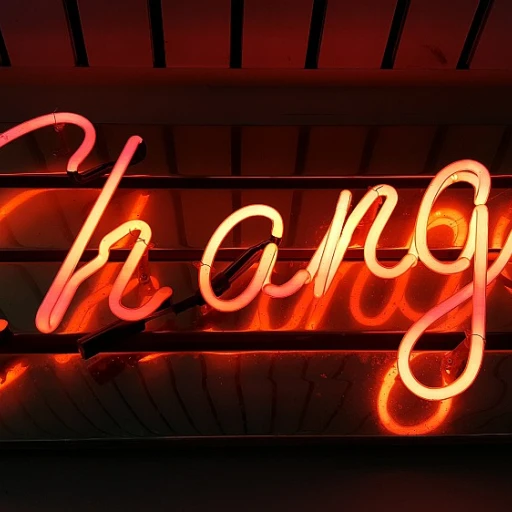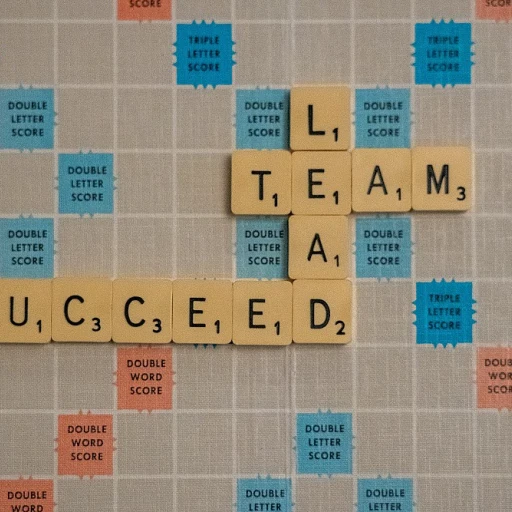Understanding Candidate Interaction in Recruitment
Recognizing the Significance of Candidate Interactions
In the area of recruitment, evaluating how candidates interact during the hiring process is crucial. It's not just about the technical skills or qualifications listed on a resume. Understanding interpersonal interactions provides insights into a candidate's potential cultural fit within a company.
Communication skills, teamwork, emotional intelligence, and adaptability are among the attributes assessed through candidate interactions. These are pivotal in aligning with the company's work environment and culture. Whether it's during an interview or a group activity, these interactions can reveal how a candidate might work with others.
The way candidates engage with interview questions, respond to team members, and demonstrate their ability to fit within a company's culture are scrutinized throughout the interview process. An intriguing aspect of candidate evaluation can be found in
thought-provoking interview questions. These questions not only help assess technical competency but also gauge the soft skills necessary for success in a given role.
Understanding candidate interaction extends beyond mere answers. Observing how candidates handle questions under pressure, how they navigate team dynamics, and align their values with company culture can be a predictor of their future performance and satisfaction in the role. As companies strive to refine their hiring processes, recognizing the multifaceted nature of candidates' interactions helps in selecting employees who will thrive in the work environment.
The Role of AI in Assessing Interpersonal Skills
Enhancing Interpersonal Skill Assessment with AI
In the recruitment process, evaluating a candidate's ability to work with others is critical. Traditional interview questions may not always accurately capture a candidate's interpersonal skills. This is where AI comes into play, offering an innovative approach to assessing these skills effectively.
AI-powered tools can analyze communication patterns during a job interview, providing insights into a candidate's cultural fit with the company. By interpreting verbal and non-verbal cues, these tools help HR teams determine how a candidate’s communication skills align with the work environment and values of a company. This advanced AI technology assists in understanding the emotional intelligence of candidates, crucial for roles requiring teamwork and collaboration with team members.
Moreover, AI can evaluate the consistency of a candidate's responses. Throughout the interview process, candidates often face various interview questions designed to gauge their fit within the team and company culture. AI systems can track these interactions over time, offering an unbiased perspective on how well each candidate answers these queries, ensuring that their skills and communication style align with the expectations for the role.
Ultimately, the integration of AI in assessing interpersonal skills not only aids in selecting candidates who fit the role but also enriches the overall hiring process by bringing clarity to complex interactions, fostering a more inclusive and effective recruitment strategy.
Leveraging AI Tools for Comprehensive Interaction Analysis
In the evolving landscape of recruitment, AI-powered tools have become indispensable for analyzing candidate interactions. These tools are designed to assess various aspects of a candidate's communication skills, emotional intelligence, and overall fit with the company culture. By integrating AI into the interview process, companies can gain deeper insights into how candidates might work with others and align with the team.
AI tools can evaluate a candidate's responses to interview questions, focusing on both verbal and non-verbal cues. This includes analyzing tone of voice, facial expressions, and even the choice of words used in their answers. Such analysis helps in understanding how well a candidate might fit into the work environment and interact with team members.
AI Tools Enhancing Candidate Evaluation
- Natural Language Processing (NLP): NLP algorithms can dissect the language used by candidates to determine their communication skills and cultural fit. This technology helps in identifying whether a candidate's language aligns with the company's values and work culture.
- Sentiment Analysis: By analyzing the emotional tone of a candidate's responses, sentiment analysis tools can provide insights into their emotional intelligence and how they might handle workplace challenges.
- Facial Recognition Software: This technology assesses facial expressions during interviews to gauge a candidate's reactions and emotional responses, offering a glimpse into their interpersonal skills.
These AI-driven tools not only streamline the hiring process but also enhance the accuracy of candidate evaluations. By focusing on both the content and context of interactions, AI helps in identifying candidates who will thrive in the company's culture and contribute positively to the team dynamics.
Benefits of AI in Evaluating Candidate Interactions
Advantages of AI in Candidate Interaction Assessment
Artificial intelligence is transforming the landscape of candidate interaction evaluation, offering multiple advantages in HR processes. These benefits not only streamline recruiting but also enhance the search for an ideal fit aligned with company culture and needs.
Firstly, AI facilitates efficient time management by automating the initial stages of the interview process. Recruiters spend less time sifting through numerous CVs and more on engaging candidates who genuinely fit the role. By utilizing AI to handle routine tasks, HR professionals can focus on meaningful conversations that gauge a candidate's genuine cultural fit and communication skills.
Additionally, AI-powered tools enhance the assessment of interpersonal abilities. Advanced algorithms analyze verbal and non-verbal cues during interviews, providing valuable insights into a candidate's emotional intelligence. This helps predict how well a potential team member might communicate with others and work within a team setting. It’s a data-driven approach that reduces biases and ensures a fair evaluation of each candidate's capabilities.
AI technology also delivers relevant sample answers to typical interview questions based on best practices in HR, aiding in the preparation of both interviewers and interviewees. Such preparation maximizes efficient use of interview time, providing a deeper understanding of how a candidate might integrate with company culture.
Furthermore, AI systems support consistent evaluation criteria, which are crucial to maintaining fairness in the hiring process. This consistency helps ensure that all candidates are judged by the same standards, leading to more equitable hiring decisions that align with the organization’s values.
Incorporating AI into recruitment strategies promotes a more thorough and effective hiring process. By leveraging AI's capabilities, companies are better equipped to navigate the complexities of candidate interactions, enhancing their ability to build diverse and high-performing teams.
Challenges and Ethical Considerations
Addressing Ethical Concerns and Overcoming Challenges
Artificial intelligence presents promising opportunities in evaluating candidate interactions, yet it also introduces several challenges and ethical considerations that HR professionals must address. As technology continues to evolve, it's crucial to ensure that AI systems are designed with fairness, transparency, and accountability in mind.
AI systems, when assessing interpersonal skills or communication abilities, may sometimes inherit biases from the data they are trained on. This can lead to skewed results that do not fairly represent a candidate's true potential or cultural fit within a company. HR teams must therefore ensure that AI models are regularly audited and updated to minimize biases and enhance accuracy in evaluating a candidate's fit with the company.
There is also the challenge of transparency. Candidates may question how AI-powered tools reach certain conclusions about their qualifications or skills. Enhancing transparency in AI algorithms can build trust between candidates, HR professionals, and the technology used in the interview process.
Furthermore, the implementation of AI can raise privacy concerns. Organizations need to handle candidate data responsibly, following regulations and maintaining confidentiality. It is crucial that candidates are informed about how their data will be used, ensuring consent is obtained at all stages of the hiring process.
Promoting fairness requires careful strategy and approach by HR teams. Combining AI assessments with human judgment allows for a balanced evaluation that considers emotional intelligence and nuanced candidate interactions. This collaborative effort is key to optimizing the interview process and ensuring that AI serves as a helpful tool rather than a solitary gatekeeper.
Despite these challenges, when used correctly, AI can greatly improve the hiring experience for both candidates and employers. Creating a diverse work environment and aligning with company culture remains a top priority, and AI can be a significant asset in achieving these goals when ethical considerations are thoughtfully addressed.
Future Trends in AI and Candidate Interaction Evaluation
The Future of Analyzing Candidate Interactions with AI
In the rapidly evolving field of human resources, artificial intelligence continues to revolutionize how candidate interactions are evaluated. With technological advancements, companies are continually seeking ways to use AI more effectively in the hiring process. But what does the future hold for AI in evaluating candidate interactions?
One trend we see is the increasing sophistication of AI in assessing interpersonal and communication skills. AI tools are becoming better at interpreting nuanced interactions during job interviews, helping companies understand a candidate's potential alignment with company culture and team dynamics. This will undoubtedly enhance the team's decision about a new hire's fit with the company's work environment.
Moreover, the use of natural language processing (NLP) and machine learning models will gain traction. These technologies help in analyzing responses to interview questions, identifying not just what candidates say, but also how they say it – offering insights into emotional intelligence and cultural fit. The more AI systems learn from diverse datasets, the better they become at predicting cultural compatibility and communication skills.
While the focus is on improving AI's capabilities, there is also a growing emphasis on ethical considerations. Ensuring AI tools are designed with diversity and inclusion in mind is becoming paramount to avoid any biases that may arise from algorithmic complexities. The challenge will be in balancing efficiency with fairness in evaluating candidates.
Companies are also investing time in creating AI systems that can be continuously updated and trained to keep up with ever-changing workplace norms and expectations. By doing so, they ensure that their recruitment processes remain relevant and effective, enhancing both quality and efficiency in hiring decisions.
As we move forward, it will be important for HR professionals to stay abreast of these technological advancements. A deeper understanding and integration of AI in the hiring process will not only refine how candidate interactions are evaluated but also ensure that companies remain competitive in attracting top talent who align with their mission and values.













